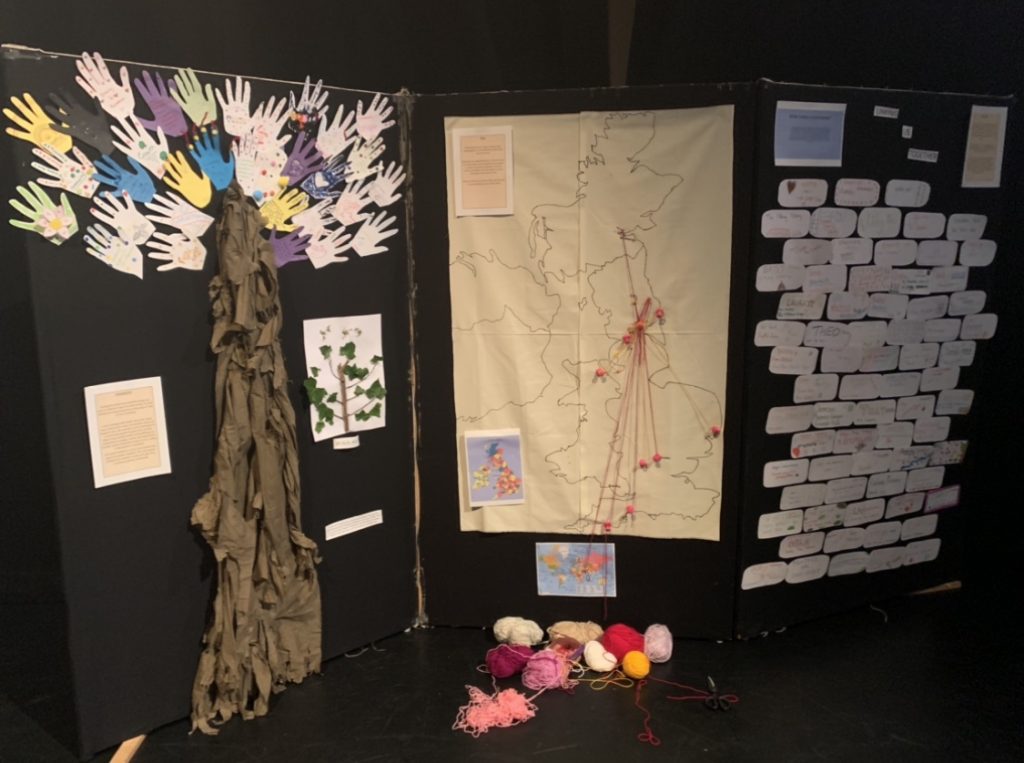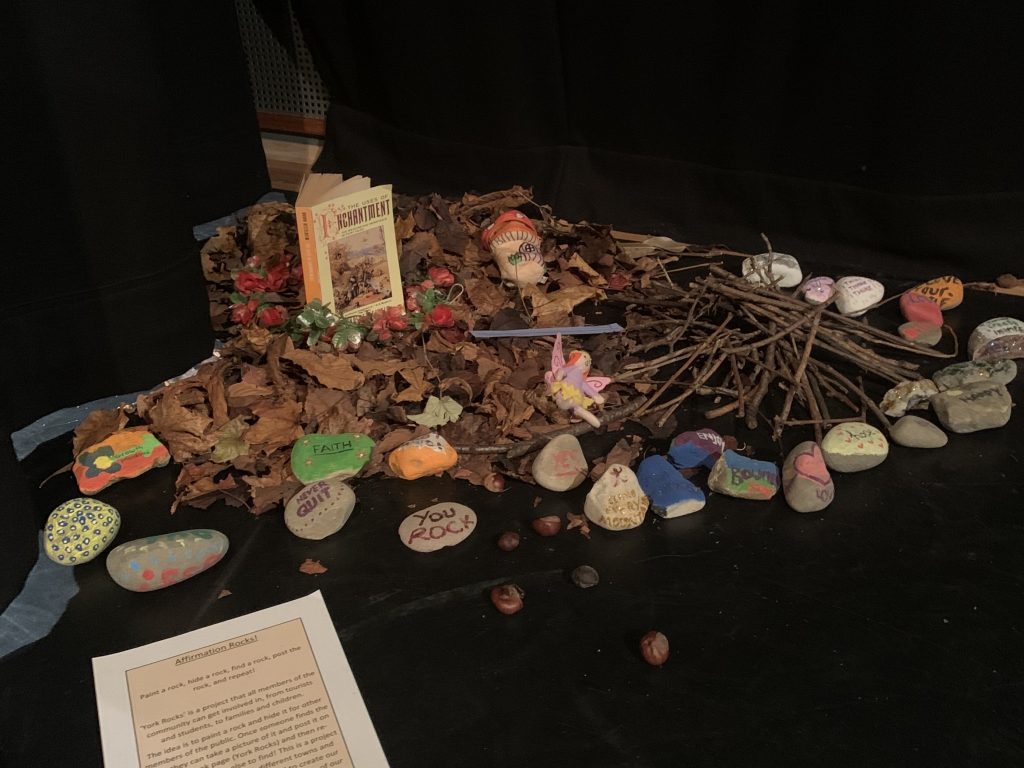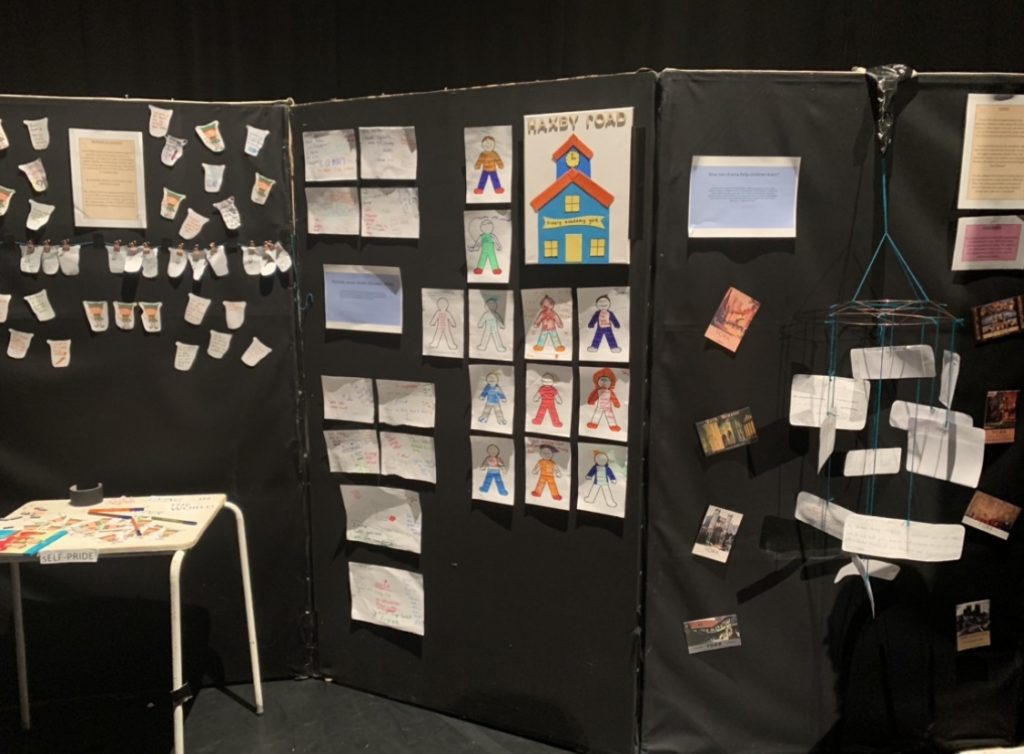My third year independent project involved introducing various drama techniques into the primary school curriculum, using co-facilitation with another peer on my course. Due to the nature of the work we wanted to produce, both schools agreed to us facilitating their PSHE classes.

The project was created as a response to lack of funding for arts-based classes within mainstream schools. As two students who have predominantly theatre-based interests, we agreed that without being exposed to theatre at an early age, we wouldn’t be where we are today. Many individuals, from less privileged backgrounds, may rely on mainstream education to broaden their skills and hobbies, therefore removing free arts classes would see a decrease in accessibility and a continuation of the negative stigma that some arts receive. With this in mind, our aim was to discover if drama had a place within other national curriculum classes, as opposed to being a subject of its own.
“Be Proud of Yourself”
During the first workshop, we taught the ‘healthy living’ module from PSHE, which incorporated healthy eating, staying active and a healthy mind. The final activity surrounded The Elf and the Shoemaker, which is a fairytale story with the moral of ‘do something good, you’ll get something good in return.’ We wanted the children to think about what they were proud of and write it on an elf shaped piece of paper, which contributed to our final display. Once the task was set, we ensured to go around the room talking to each individual, or group of children and discuss their ideas, or help them to come up with an answer. Comments ranged from being a good friend, to achieving awards in school and clubs. I was, however, surprised to see how many children struggled with this task, or could only relate it to their games consoles.
I believe that in today’s society, it is important to look after our minds, particularly holding the ability to think positively about ourselves. With a rise in anxiety and depression in young people, I believe that encouraging positive thoughts among peers and individuals will benefit their overall self-worth. On sharing back to the class, you began to see the stories they wanted to share and how proud they were of their achievements. This is something I would hope to incorporate into future class activities, in order to build self-esteem and confidence.
Woolland (1993, p.9)
“Drama is essentially a social art form; it is concerned with how individuals relate to the world they live in; how individuals interact with each other and society in a wider sense.”
How this experience can relate to teaching.
We took note that it was sometimes difficult to gain focus in the room, as these were spaces that typically weren’t associated with drama activities and games. From this, we introduced positive reinforcement, by encouraging them to finish tasks quickly and quietly, in order to be rewarded with a fun game or activity at the end of the session. Positive reinforcement is a technique that would be valuable in the classroom for other subjects, as children often see the reward as motivation to listen. It also allows them to understand the consequences of not doing what they have been asked to do.
When practiced efficiently, “co-facilitation is non-hierarchical and empowering.” (Clifford 1999. p.22) This is exactly the ideology we had throughout this project, as indicated in the support we gave each other, both within the workshops and throughout the planning process. Typically, discussion based activities were co-facilitated, allowing us both to ask open ended questions to the group. This required excellent communication skills, in order to listen to each other, as well as the children. Physical activities were led in a teacher/teaching assistant approach, with one ‘main’ facilitator explaining the activity, and the other ensuring children were listening to instructions. Within an educational setting, teachers, teaching assistants and headteachers have to be able to work together as a team, in order to effectively support their students. Good communication skills are vital for this, as well as being able to feedback to parents and, of course, teach young people. This project gave us an opportunity to collaborate with other professionals in their workplace, in order to provide worthwhile, yet interesting, activities for their students.
Bibliography
Clifford, S. and Hermann, A. (1999) Making a Leap: theatre of empowerment: a practical handbook for drama and theatre work with young people. London. Jessica Kingsley.
Woodland, B. (1993) The Teaching of Drama in the Primary School. England. Longman Group Ltd.


